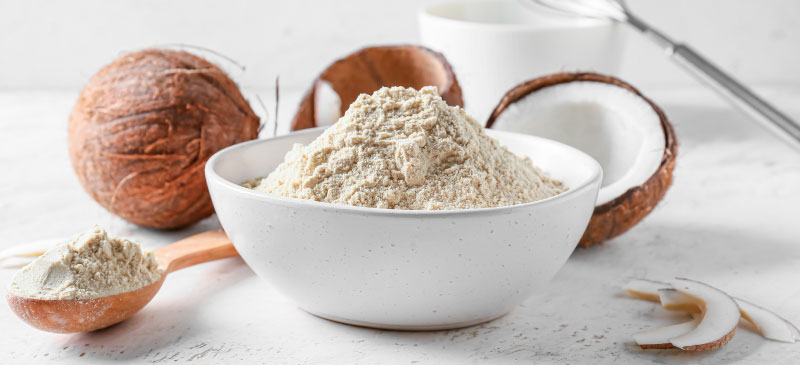Introduction to Can Cats Have Coconut:
Cats are fascinating creatures that enjoy trying new flavors and textures(Can cats Have coconut). As pet parents, we frequently worry about what sorts of food we may safely feed our animals.
“Can cats Have coconut?” is one question that springs to mind. This article will look at the nutritive value of coconut, whether cats can eat it, and how much they should eat.
The Nutritional Benefits of Coconut:
Coconut is a nutrient-dense food that is abundant in minerals and vitamins. It has a lot of good fats, fiber, and protein. Let’s look at the nutrient content of coconut in more detail.
- Vitamins and Minerals in Coconut:
Coconut is high in vitamins and minerals, which are needed for healthy health. It is high in potassium, magnesium, and calcium, all of which help to maintain healthy bones and muscles.
Coconut is also high in vitamin C, which helps to strengthen the immune system and supports healthy skin and hair.
- The Benefits of Coconut Oil:
Coconut oil is a common ingredient in many cosmetics and provides a variety of health advantages for both humans and dogs. It is high in medium-chain triglycerides (MCTs), a form of fat that is easily eliminated from the body and converted into energy.
Coconut oil can aid in the improvement of brain function, the reduction of inflammation, and the promotion of good digestion. It can also assist to lower cholesterol levels and lessen the risk of heart disease.
Can Cats Have Coconut?
The short answer is yes, felines can eat coconut but in moderation. Coconut is not hazardous to felines, although it should not be consumed on a regular basis.
It is vital to remember that cats are opportunistic feeders, which means they require a high-protein diet.
If you do decide to feed coconut to your cat, make sure it is unsweetened and in tiny quantities. Coconut flesh and milk are okay for cats to consume, but coconut oil is a different story.
While it may have health benefits, it is also heavy in fat and may cause digestive problems in some cats.
How many coconuts Should Cats Consume?
When it involves giving your cat coconut, balance is crucial. A small quantity of coconut meat or milk might be beneficial to your cat’s diet, but too much can cause digestive problems such as diarrhea or vomiting.
Cats should not ingest more than 10% of their daily calories from treats or human food as a general rule.
This means that if your cat needs 200 calories per day, it should not eat more than 20 calories per day from treats or human food.
Conclusion:
To summarise, cats can eat coconut, but only in moderation. Coconut is a highly nutritious meal that can offer a number of health benefits for both humans and dogs.
However, keep in mind that cats require a diet strong in protein, and too much coconut might create digestive difficulties.
If you do decide to feed coconut to your cat, make sure it is bitter and in moderate amounts. As with any new food, it is best to introduce it gradually and observe your cat’s reaction.
FAQs:
Is coconut oil safe for cats?
Coconut oil can be safe for cats in small amounts, but it is high in fat and should be given in moderation.
https://youtu.be/DRXFP2iLvCs
Can cats have coconut milk?
Yes, cats can have coconut milk, but it should be unsweetened and in small amounts.
Can coconut cause digestive issues in Felines?
Yes, too much coconut can cause digestive issues like diarrhea or vomiting in some small kittens.
Can coconut improve a cat’s skin and coat?
Coconut oil can help to improve the health of a cat’s skin and coat, as it is rich in healthy fats and can moisturize dry skin. However, it should be used in moderation and in consultation with a veterinarian.
Can a Feline be allergic to coconut?
Yes, some felines can be allergic to coconut. It is important to monitor your cat’s reaction when introducing any new food to its diet.
Can cats have coconut flour?
Coconut flour is not recommended for kittens, as it is high in fiber and can cause digestive issues.
Can coconut be used as a natural remedy for hairballs in Felin?
Coconut oil can help to lubricate a cat’s digestive tract and prevent the formation of hairballs. However, it should be used in moderation and in consultation with a veterinarian.
Is it safe to feed cats coconut oil as a dietary supplement?
Coconut oil can be safe for cats in small amounts, but it should be given in moderation and in consultation with a veterinarian.
Can cats have coconut water?
Coconut water is not recommended for cats, as it is high in sugar and can cause digestive issues.
Can coconut be toxic to cats?
Coconut is not toxic to kittens or felines, but it should not be a regular part of their diet and should be given in moderation.
